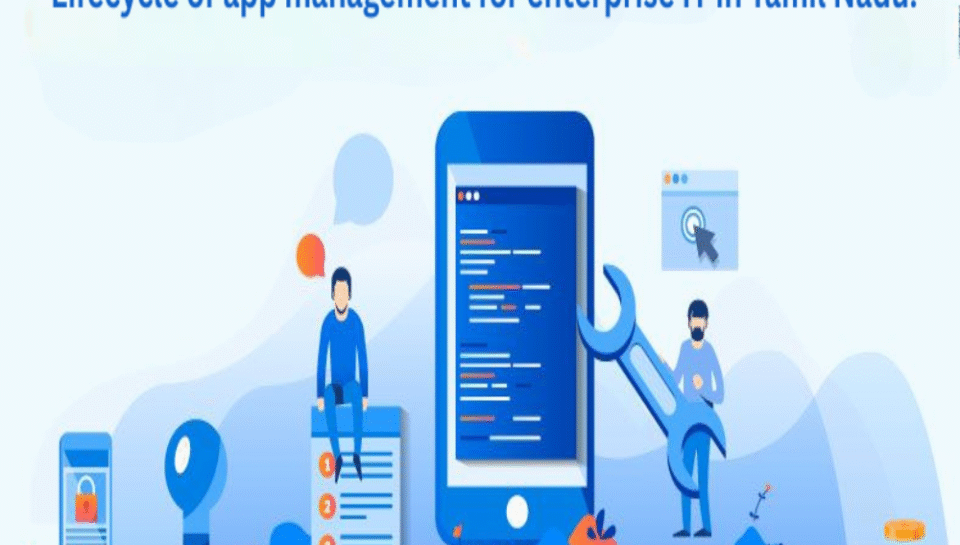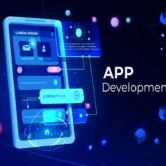
Describe the lifecycle of app management for enterprise IT in Tamil Nadu.
Introduction
In the dynamic landscape of Tamil Nadu’s enterprise IT sector, app management plays a vital role in enabling digital transformation, improving customer experience, and optimizing internal processes. As organizations across Chennai, Coimbatore, Madurai, and other tech-forward cities increasingly adopt mobile and web applications to manage operations, service delivery, and public engagement, the need for robust app lifecycle management becomes imperative. From conception to retirement, the lifecycle of enterprise application management involves a series of structured stages that ensure reliability, scalability, compliance, and innovation. This lifecycle is especially crucial in Tamil Nadu’s enterprise IT ecosystems where government initiatives like TNeGA, smart city projects, and industry-specific digital platforms demand seamless application performance, high security, and user adaptability.
Requirement analysis and planning
The first stage of app lifecycle management begins with requirement gathering and strategic planning. In Tamil Nadu’s enterprise IT context, this involves collaboration between IT heads, domain experts, and software vendors to identify application goals, user needs, technical feasibility, and regulatory constraints. This stage includes stakeholder consultations, documentation of functional and non-functional requirements, and selection of technology stacks. It sets the foundation for app architecture and aligns the project scope with institutional goals such as digital governance, business automation, or public service delivery.
Design and user experience strategy
Once planning is complete, enterprise apps enter the design phase, where user interface (UI) and user experience (UX) become the focal points. In Tamil Nadu’s enterprise landscape, apps must cater to a diverse range of users—from government staff and industrial workers to rural citizens using public utility apps. The design must accommodate multilingual interfaces, accessibility features, and region-specific workflows. UI/UX designers focus on intuitive layouts, responsive design for mobile compatibility, and localized content to ensure adoption across user categories.
Development and integration
Development is where actual coding begins, transforming designs into working modules. In Tamil Nadu’s enterprise IT sector, apps are typically built using scalable platforms like Java, .NET, Python, and React, often hosted on cloud infrastructures supported by TNeGA or private data centers. Enterprise apps may also require integration with legacy systems, state databases, payment gateways, GIS tools, or third-party services. Agile and DevOps methodologies are widely adopted to enable faster iteration cycles and better team collaboration. Source control systems like Git and CI/CD pipelines help maintain code integrity and streamline deployments.
Testing and quality assurance
Once the application is developed, it undergoes rigorous testing to ensure functionality, security, and compatibility. In Tamil Nadu’s enterprise environments, apps must pass functional testing, load testing, user acceptance testing (UAT), and compliance validation. Special attention is given to language rendering (especially Tamil fonts), server latency, and mobile responsiveness. Government and private enterprises often employ test automation tools like Selenium, JMeter, and Appium to simulate real-user conditions and reduce human errors. Bugs and vulnerabilities are identified and fixed before the app goes live.
Deployment and launch
After passing all quality checks, the application moves into the deployment phase. For Tamil Nadu-based enterprises, apps are often deployed on hybrid cloud environments provided by NIC, AWS, or private IT partners. Secure authentication, SSL certificates, and endpoint protection are installed before the launch. The deployment is strategically timed to avoid service interruptions and often involves pilot runs with selected departments or users before full-scale rollout. Documentation, training modules, and user manuals are provided to facilitate onboarding.
Monitoring and performance management
Post-launch, app monitoring becomes critical to ensure uptime, speed, and user satisfaction. In Tamil Nadu’s enterprise context, apps are monitored through centralized dashboards for metrics like load time, error frequency, login activity, and API performance. APM tools such as New Relic, Datadog, or Zabbix are used to detect anomalies in real-time. Feedback mechanisms are integrated to capture user concerns, and tickets are raised through ITSM systems for issue resolution. Ongoing support from development teams ensures swift responses to incidents and continuous performance tuning.
Security and compliance maintenance
Enterprise apps in Tamil Nadu handle sensitive data related to finance, healthcare, governance, and public records. Therefore, app management requires stringent security enforcement throughout its lifecycle. Security policies include data encryption, access control, session monitoring, and audit trails. Periodic penetration testing and vulnerability assessments are conducted to prevent breaches. Compliance with state and national regulations like IT Act, CERT-In guidelines, and Aadhaar data standards is mandatory. Organizations often appoint a Chief Information Security Officer (CISO) or Data Protection Officer (DPO) to oversee app security posture.
Update and enhancement cycles
Enterprise applications need regular updates to stay relevant, fix bugs, improve security, and introduce new features. In Tamil Nadu, many government and corporate IT teams follow quarterly or bi-annual update schedules, aligned with operational cycles. Updates include UI refinements, new integrations, feature rollouts, and policy compliance patches. Feedback from helpdesks, users, and analytics dashboards drive the prioritization of these updates. Version control systems and rollback mechanisms ensure that new releases do not disrupt existing functionalities.
Scalability and user expansion strategy
As usage grows, enterprise apps must scale to support larger audiences and higher data volumes. Tamil Nadu’s smart city apps, for example, need to handle traffic data, citizen feedback, utility services, and disaster alerts simultaneously. Scalability strategies include load balancing, database sharding, containerization using Docker or Kubernetes, and adoption of scalable APIs. Elastic cloud infrastructure allows for on-demand resource allocation, ensuring the app remains responsive during peak times like festivals, elections, or emergency responses.
Retirement and data archiving
Eventually, every application reaches its end-of-life phase, either due to technological obsolescence or strategic realignment. In Tamil Nadu’s enterprise ecosystem, app retirement involves phased decommissioning, user migration, and data archiving in compliance with retention laws. Exit strategies are documented, and stakeholders are informed well in advance. Archived data is preserved in secure storage for audits, legal reference, or future migration. Retiring apps with dignity ensures minimal disruption and protects the organization’s digital reputation.
Conclusion
The lifecycle of app management for enterprise IT in Tamil Nadu is a structured, multi-phase journey that integrates strategy, technology, and user-centric execution. From planning and development to retirement and archival, each stage plays a vital role in ensuring application sustainability and value delivery. The digital revolution in Tamil Nadu—fueled by both government and private sectors—requires apps that are robust, secure, scalable, and compliant. By adopting best practices in lifecycle management, enterprises can not only meet operational goals but also drive innovation, improve citizen engagement, and reinforce Tamil Nadu’s position as a leading digital economy. Strategic app management is no longer optional; it is essential to staying competitive and relevant in the digital age.
Hashtags
#EnterpriseIT #AppLifecycle #TamilNaduTech #DigitalTamilNadu #EnterpriseApps #ITGovernance #AppDevelopmentTN #CloudDeployment #SecurityCompliance #AppTesting #UserExperience #DigitalTransformationTN #DevOpsInTamilNadu #AgileDevelopment #ApplicationMonitoring #CI_CD #DataSecurity #APMTools #ScalableApps #VersionControl #LegacyIntegration #GovernmentIT #SmartCityApps #ITInfrastructure #EnterpriseInnovation





